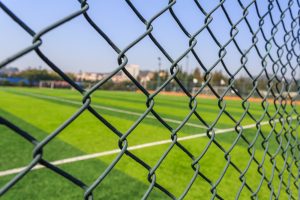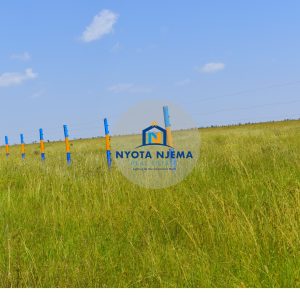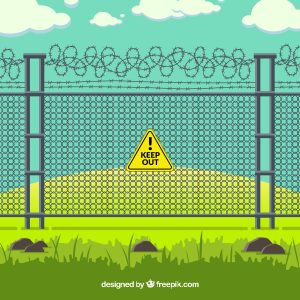available on the
Google Play

Chain link fencing is one of the most popular and affordable types of fencing available in Kenya. It is a great choice for both residential and commercial applications. Concrete poles and wires that are bent into a zig-zag pattern and run vertically are used to construct this fence. Since only chain link and poles are needed, it is a cheap type of fence. Since one may view your land via the fence, it does not offer complete seclusion.
Wrought iron fencing is one of the most popular and secure types of fences, it is used in enhancing gates. It is very strong and durable and looks great in any environment.
This particular style of fence is constructed of metal panels and natural stones, bricks, or blocks. It is additionally known as a masonry fence. This kind is typically prevalent in residential homes, it is tall enough to give the house seclusion.
Fences made of barbed wire are quite frequently used in Kenya. It is made of wires that have been repeatedly twisted and is covered in barbs or spikes that can easily stab you. Barbed wire fencing is a great choice for those who need a more secure type of fencing. It is also relatively affordable and can be used in a variety of applications.

Wooden fencing is a great option for those who want a more natural look and feel. It is relatively affordable and can be painted or stained for a more custom look. Basically, this form of fence is constructed with materials gathered from trees. They don’t cost a lot of money and are cost-effective. However, because wood fences are temporary and have a short lifespan, pests like termites can easily destroy them.
Aluminum fencing is a great choice for those who want a modern look and feel. It is also very durable and can be painted to match the exterior of your home. Due of its durability, aluminum fence is said to be suitable for commercial applications. The easy-to-clean aluminum material requires relatively little upkeep.Despite the fact that aluminum is generally low-maintenance and simple to install, the initial cost of aluminum fencing is higher than that of most materials.
Hedge fencing is a great way to create a natural border to your property. It is also a great way to add privacy to your yard. A hedge is a living fence made of closely planted bushes, which, as they grow and get trimmed and shaped, form a wall of green. This flower climbs have a vast network of thorny, woody, and twisted branches. This style of fence gives your property a natural feel.
The iron fencing is used to make a different and personalized solution. Because of its weight and malleability, this material allows for a high degree of personalization. When used in fencing, it also necessitates

extensive care. Every two to three years, the iron or steel material needs to be painted again and undergoes rusting and corrosion.
The majority of electrified fences are made of thin steel or aluminum, and they are designed to shock trespassers when they come into contact with them in prohibited areas. Electrified fences are typically installed for agricultural purposes, government reserves and national parks, providing just enough voltage to make the person touching it uncomfortable. They are also used in other applications, such as for commercial or industrial uses, and they may be designed to shock the offender.
Fencing your home is an important security measure that offers several benefits, including:
In conclusion, fencing your home has numerous benefits, including ensuring security, privacy, and safety, enhancing property value, and providing aesthetic appeal.
When buying a fence, here are some crucial factors that you should consider:
For more information call/chat with us today!